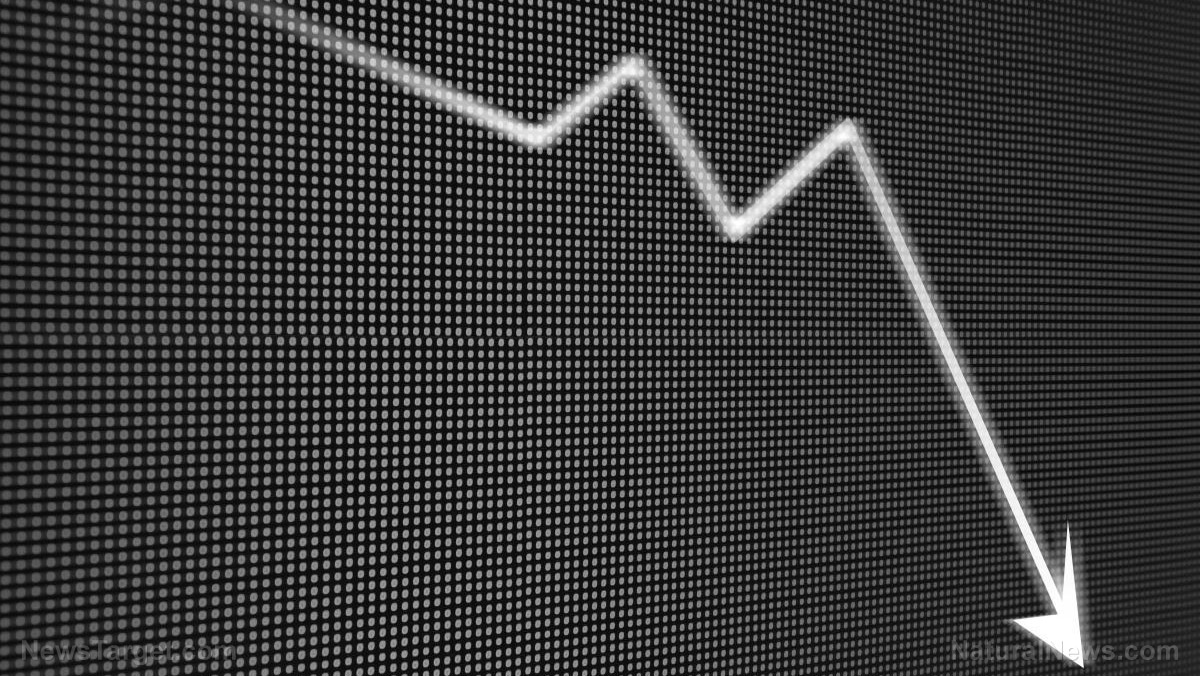Recession unlike any other is imminent, says BlackRock: “what worked in the past won’t work now”
12/13/2022 / By Ethan Huff

The world’s largest asset manager is warning that a recession is now an inevitability and that the tools utilized in the past will not work this time to save the economy.
Central banks, says BlackRock, will not be able to support the markets and prop them up like happened in 2008 and previously. This time, the group’s strategists say, we are in uncharted territory.
“Recession is foretold as central banks race to try to tame inflation,” BlackRock says. “It’s the opposite of past recessions.” (Related: Will it be a recession or a depression?)
By increasing interest rates, central banks like the Federal Reserve will only add more turbulence to a vastly overinflated market. The global economy, says BlackRock, is already retreating from a four-decade era of relatively stable growth and inflation, despite the Fed’s moves.
Increased unpredictability in the markets is here to stay, according to a team of BlackRock strategists led by vice chairman Philipp Hildebrand, who explained all of this and more in a report called the 2023 Global Outlook.
“Central bankers won’t ride to the rescue when growth slows in this new regime, contrary to what investors have come to expect. Equity valuations don’t yet reflect the damage ahead.”
U.S. stocks expected to plunge another 20% – at least – in 2023
In order to navigate the volatility ahead, investors will need to adopt more “dynamic” methods of maintaining their assets. This means more frequent portfolio changes, as well as taking a more “granular view on sectors, regions and sub-asset classes.”
“What worked in the past won’t work now,” the BlackRock strategists say.
“The old playbook of simply ‘buying the dip’ doesn’t apply in this regime of sharper trade-offs and greater macro volatility. We don’t see a return to conditions that will sustain a joint bull market in stocks and bonds of the kind we experienced in the prior decade.”
In 2023, say Morgan Stanley, Bank of America, Deutsch Bank, and other Wall Street financial institutions, United States stocks are expected to plunge another 20 percent due to an economic downturn and increased liquidity risks fueled by the Fed’s interest rate increases.
In the view of Goldman Sachs CEO David Solomon, there is only about a 35 percent chance that the U.S. economy avoids a recession. Truth be told, the country is already in a recession if we go by the old metrics that were conveniently changed on a whim by the Biden regime this past summer.
The housing market is already showing signs of slowing while household debt is up, inflation is still through the roof, and consumer savings declines. There is also a profound and growing distrust in government institutions, which includes the financial system – even though the Fed is a private banking cartel run by globalists that has nothing to do with the government.
The stock market, even at currently reduced valuations compared to last year, has still not priced in the full magnitude of what is to come. Investors need to keep this in mind as we move into 2023.
“We don’t think equities are fully priced for recession,” the BlackRock strategists say. “Corporate earnings expectations have yet to fully reflect even a modest recession. This keeps us tactically underweight developed market equities.”
After reaching a 23-month low back in October, the S&P 500 is up more than 12 percent, driven mainly by the belief among some that the Fed will slow the pace of interest rate hikes.
The latest news about the imploding global economy can be found at Collapse.news.
Sources for this article include:
Submit a correction >>
Tagged Under:
BlackRock, Bubble, Collapse, deep state, depression, dollar demise, economic collapse, economic riot, finance, housing bubble, Inflation, market crash, money supply, pensions, recession, risk, Wall Street
This article may contain statements that reflect the opinion of the author
RECENT NEWS & ARTICLES
COPYRIGHT © 2017 PENSIONS.NEWS
All content posted on this site is protected under Free Speech. Pensions.news is not responsible for content written by contributing authors. The information on this site is provided for educational and entertainment purposes only. It is not intended as a substitute for professional advice of any kind. Pensions.news assumes no responsibility for the use or misuse of this material. All trademarks, registered trademarks and service marks mentioned on this site are the property of their respective owners.




















